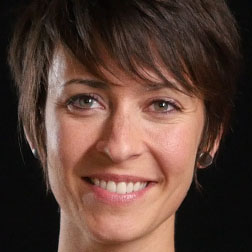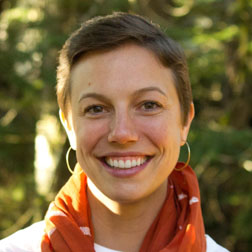Emergence. A word filled with openness, possibilities, and novelty. I often witness it with teams I work with, and it is truly beautiful to see a group of people unlocking new ideas that will carry them a little further. The resulting burst of positive energy and motivation creates momentum and amazing outcomes. As a facilitator, it’s a real treat to be part of the process.
Yet emergence seems fragile in our world of misinterpretation, glorification of the ego, limited perspectives, and the sense of not being enough. Because emergence is perceived as the threshold for innovation, which in turn is important in fostering growth, there is a fear in discarding any new ideas that might be useful. So whatever is emerging is almost considered a magical manifestation that must be protected – something that happens out of thin air, and we must get out of it’s way to make it happen.
Leading people through emergence is considered a rare skill. What is so special about emergence that requires such talent? Emergence is about being aware of what’s happening now and co-creatively nourishing it. Most of the time, the ideas already exist, lost in a sea of many, multiplied by the number of people present in the group and perhaps even beyond. So it’s about how connections between these ideas are noticed and brought forward. As facilitators, we are developing the capacity to sense and capture these moments as they are arising. Links between ideas live and die extremely rapidly. When we miss them, they are mostly gone forever, until the next one appears. It’s about being in action within action – to move and be moved by what’s happening.
If emergence is already happening, how do we learn to witness and bring it forward? We know that structures and attitudes are important–leaving things loose isn’t the answer. In fact, not having structures and holding an “it will happen when it happens” attitude can actually prevent emergence. The same thing can occur when our processes are more important than people’s interactions, and we focus more on what we want than what’s happening now. In both cases, we miss the point.
When facilitating groups, I notice a great deal of fear around sharing ideas. People are afraid of being judged, so a good facilitator’s role is to welcome all ideas. We bake this into the ground rules. Where there is a hierarchy, the invitation must come explicitly from above. Judgments will still be made, no matter what ground rules we put in place, so we can use their energy to focus on ideas rather than people.
Having a safe environment is key, starting with an attitude that welcomes failure as a learning process toward success instead of an end point. It’s about being willing to experiment to discover what is really in service, instead of thinking about everything before we start. It’s taking an adaptive mindset, instead of seeing everything as a problem to be fixed. I regularly repeat to myself a phrase that profoundly touched me as a facilitator and a coach: I am committed to your success but not attached to the solution.
This makes me willing to be fully invested in a group’s intention. I’m willing to fully expose my ideas and be OK with them being changed or discarded for the benefit of someone else’s idea. It shows up in a discussion where I will be as amazed by someone else’s idea as by my own. It has to be shared by participants and thoroughly demonstrated by the leaders (informal or formal). Because the style of leadership is so influential, a welcoming, curious and caring approach creates fertile ground for emergence to be noticed by you and others.
Because emergence is something that arises unexpectedly and potentially crosses limits, structures that serve as positive, lightweight and permeable boundaries will help people to notice emergence in the moment. Think about the environment you’re in, the activities you’re choosing, the clarity of instructions you’re giving, the ease of access to shared materials, and how ideas are captured and shared after it’s over. All this matters to calm and create a psychologically safe and engaging environment. I highly recommend activities such as Liberating Structures, as they provide just enough of a container to do just that. But as facilitators, we must not be attached to any activity, and be willing to let it go if something new that emerges can better serve the group’s intention. The point is not to complete activities, but to foster discussions and connect ideas–and be willing to change as needed.
So it’s not that emergence is fragile, but it’s our ability to perceive and welcome it that is fragile.
Emergence is moving you. It’s facilitating you. Be amazed, because it’s happening now.
Dave Jacques is an organizational facilitator, author and coach, helping groups and people develop their full potential by providing a creative environment to learn and grow. He is passionate about team dynamics, human development and the use of the whole body in the search for quality exchanges.




3 thoughts on “Let Emergence Facilitate You”
Enlivening Edge Magazine would love to republish this blogpost, Dave, with a link back to this original. I have in mind to briefly introduce it to our readers with a provocative question: “How might the perspectives and practices shared here show up in your next Holacracy tactical or governance meeting?” http://www.enliveningedge.org May we have permission from you or whomever we’d need permission from at Ten Directions?
Hi Alia: Lovely to hear from you! I think Dave is traveling right now, but I’ll send him a message now to let him know about your request and will let him respond directly! Hope you’re doing well!
Hi Alia, sorry for the delay, I’m now back from traveling! I totally agree with republishing this blog on your site and your question is indeed a good way to do so. Keep me posted when it is on your site!